The New People’s Army fight vs Drugs
by Pat Gambao
Aware of the disastrous consequences on people, the society and the revolution, the revolutionary movement from its inception has been fighting the drug menace—long before Duterte started his own “drug war”.
The organs of political power in the guerrilla zones have impressed on the masses the dangers of addictive drugs. In conjunction with this, they helped the masses cope with the prevailing conditions that forced them to turn to drugs either for the money to beat the debilitating poverty or to escape from its reality. People were organized and they joined hands to increase production and income. They were initiated to meaningful activities. They were trained for tasks on health care and education to fill in the vacuum left in the far-flung barrios by the reactionary government. The youth were drawn to sports and cultural activities that challenge their vibrant energy and creativity.
Through political education the masses have been enlightened and have fully understood the root cause of their problems and the solution that is in their very hands. Their awakening has instilled in them a sense of purpose for being. With these the scourge of addictive drugs was eventually licked as they imbibed the revolutionary discipline.
In 2015 for example, the revolutionary youth movement, Kabataang Makabayan (KM, Patriotic Youth) in Central Luzon launched various activities in their respective barrios to draw the youth, as well as adults, away from marijuana and shabu. The KM conducted forums on the youth situation and how the decadent system has engendered the problems of drugs and criminality. It led meetings with the barrio youth to plan on productive activities with them. They formed a basketball league and held tournaments lasting for one and a half months. Some 50 youth participated in the tournaments initially. The number swelled later.
Simultaneous with these activities, the New People’s Army (NPA) in coordination with the Party branches issued series of warnings to pushers and users in the barrios of Central Luzon. The NPA, in coordination with the KM, widely disseminated the policy of the revolutionary movement and the people’s democratic government on the trafficking and use of drugs, be it in small or huge volume.
Meantime, drug traffickers, their activities, networks and laboratories in the guerrilla fronts of Panay were banned. The Coronacion Chiva “Waling-waling” Command of the NPA uprooted the marijuana plantations in Barangay Buloc, Tubungan town a few years back. Two years ago, a known drug dealer was arrested, disarmed and driven out of the NPA front after bringing in drugs in a town in Capiz. In April 2016, the Napoleon Tumagtang Command, also based in Panay Island, launched a campaign against illegal drugs in barangays surrounding the town of Tubungan. The drug production facilities of drug lord Edwin Odicta in the NPA area and the entry of the Richard Provendido’s drug syndicate in San Joaquin, Iloilo has been subject of NPA’s surveillance. Odicta was shot by an unidentified man on his way back home from Manila while Provendido was killed in a police operation.
In 2016, the revolutionary movement in Northern Samar investigated illegal drug trafficking that implicated high officials of the province.
In the Southern Mindanao Region, the NPA has launched tactical offensives to dismantle the network of operation of drug syndicates. A police chief here once said that criminality and drug addiction is practically absent in areas where the NPA is strong. In the Central Mindanao Region, the NPA burned marijuana plantations run by the killer paramilitary group Alamara.
Aware of the NPA’s fight against drugs, Duterte has once called on them to run after drug lords. However, seeing that the Duterte regime’s war on drugs is clearly anti-democratic and anti-people, having become a frenzied campaign of extrajudicial killings and vigilante murders perpetrated by the police and police-linked criminal syndicates, the Communist Party of the Philippines (CPP) withdrew its support to the regime’s drug campaign.
The revolutionary movement recognizes that the drug plague is rooted in the basic problems confronting the Filipino people—the historic imperialist dominance perpetuating the feudal and bureaucrat capitalist conditions in the country. The NPA will continue its anti-drug campaign but will adhere to its policy of differentiating poor drug users and victims of drug abuse from the rabid perpetrators of the drug trade. The NPA will continue to intensify its campaign to arrest and disarm drug trade operators and protectors in its territory.
The revolutionary movement has its own criminal justice system and offenders are given due process as well as due punishment. Meanwhile poor drug victims will be rescued and rehabilitated through political education and meaningful activities.
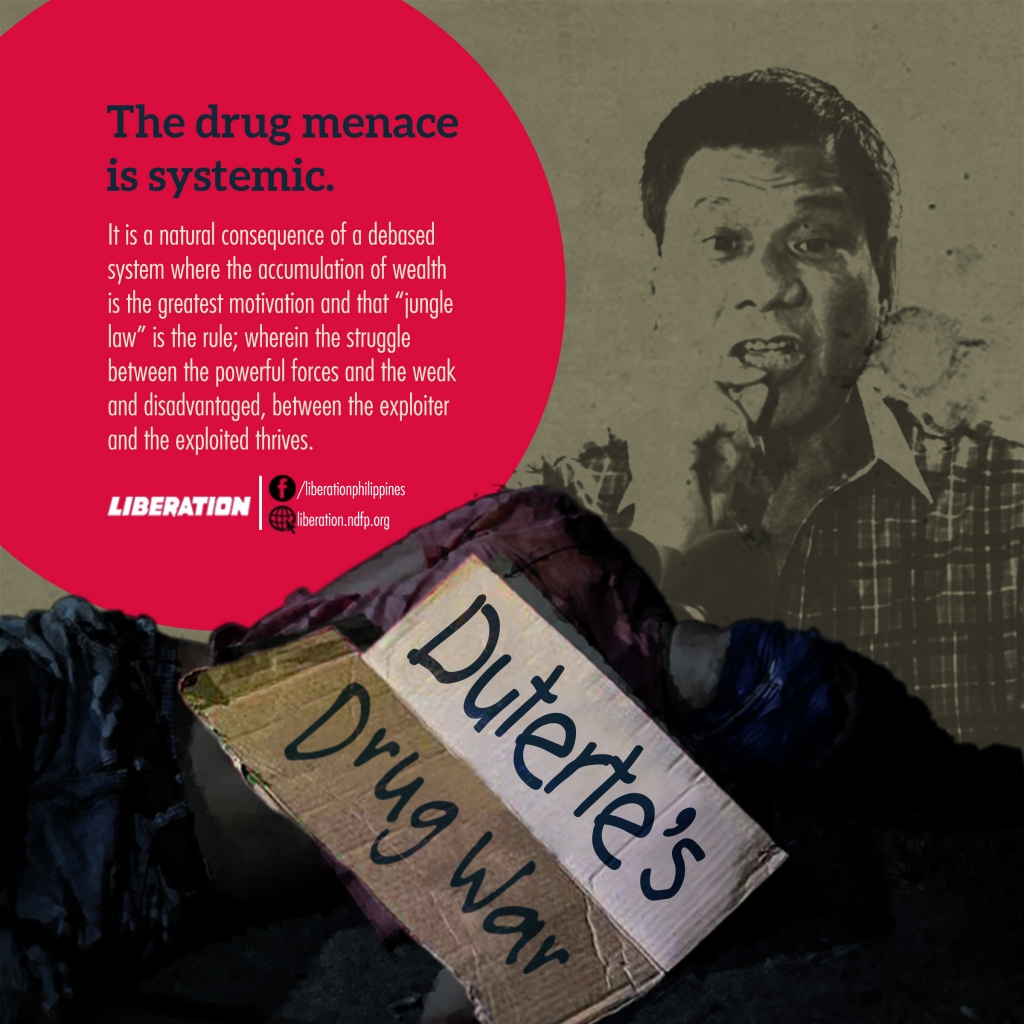
Duterte’s Drug War: Via Body Count or the People’s Movement
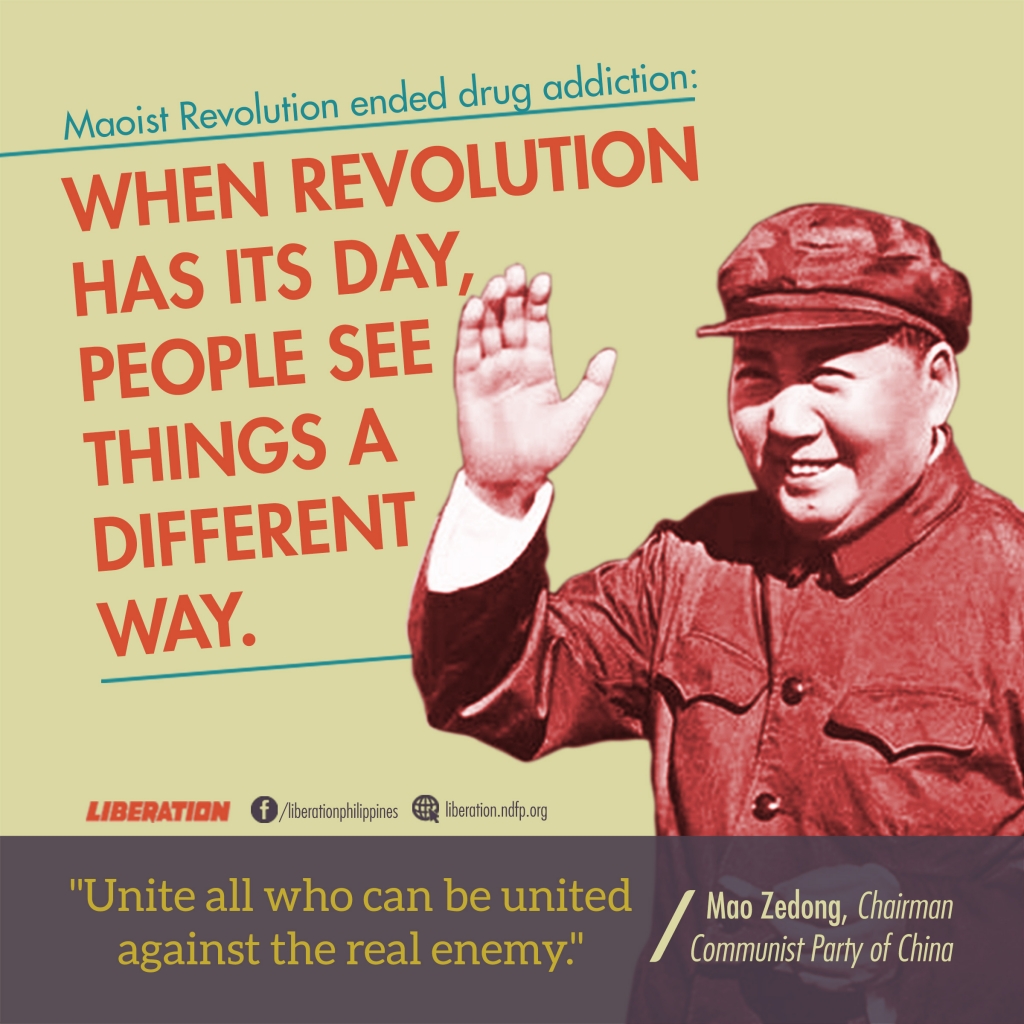
China’s Experience Under Mao

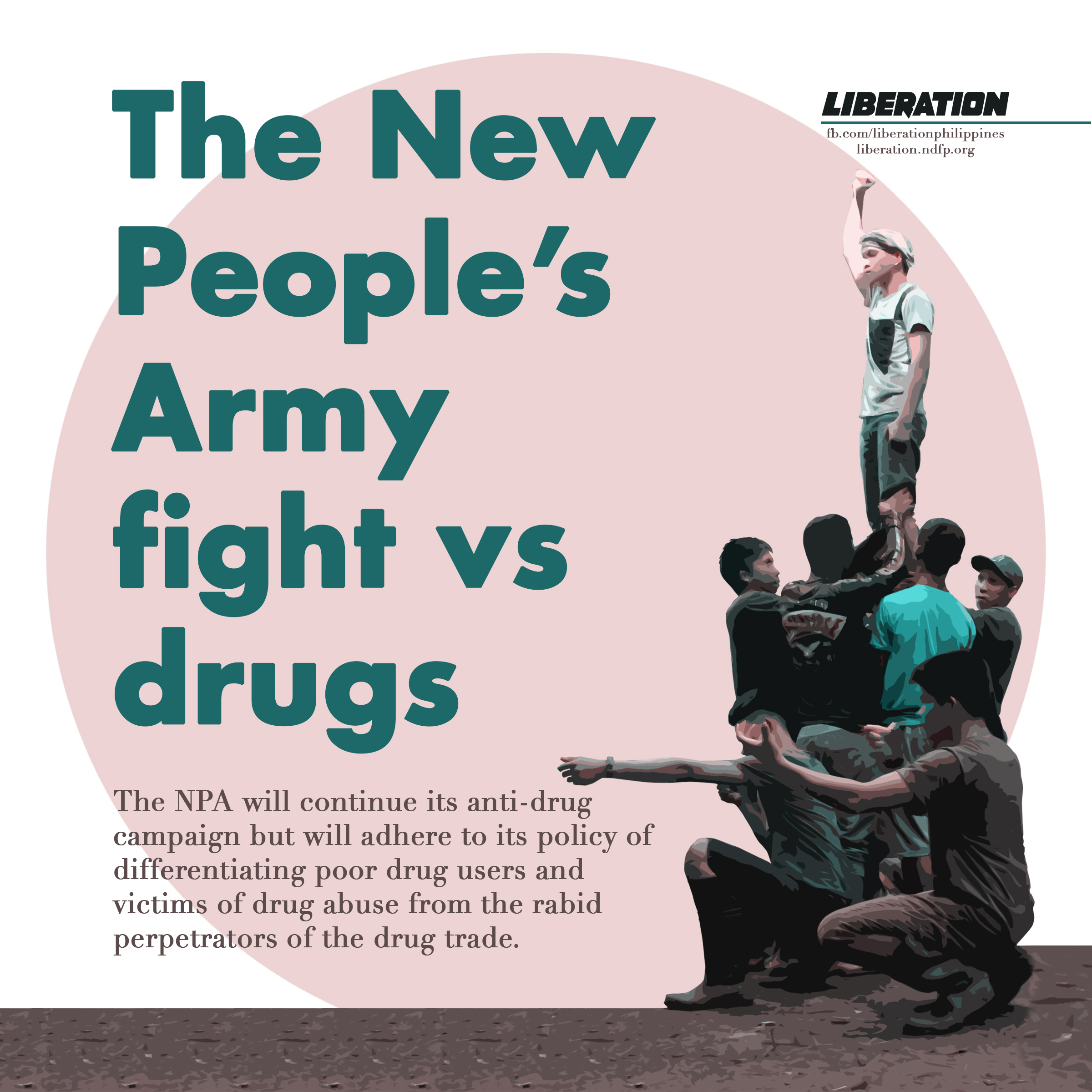
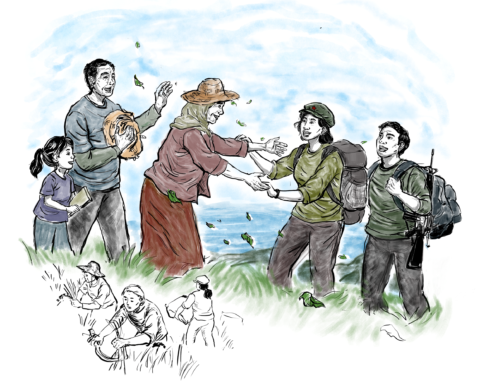
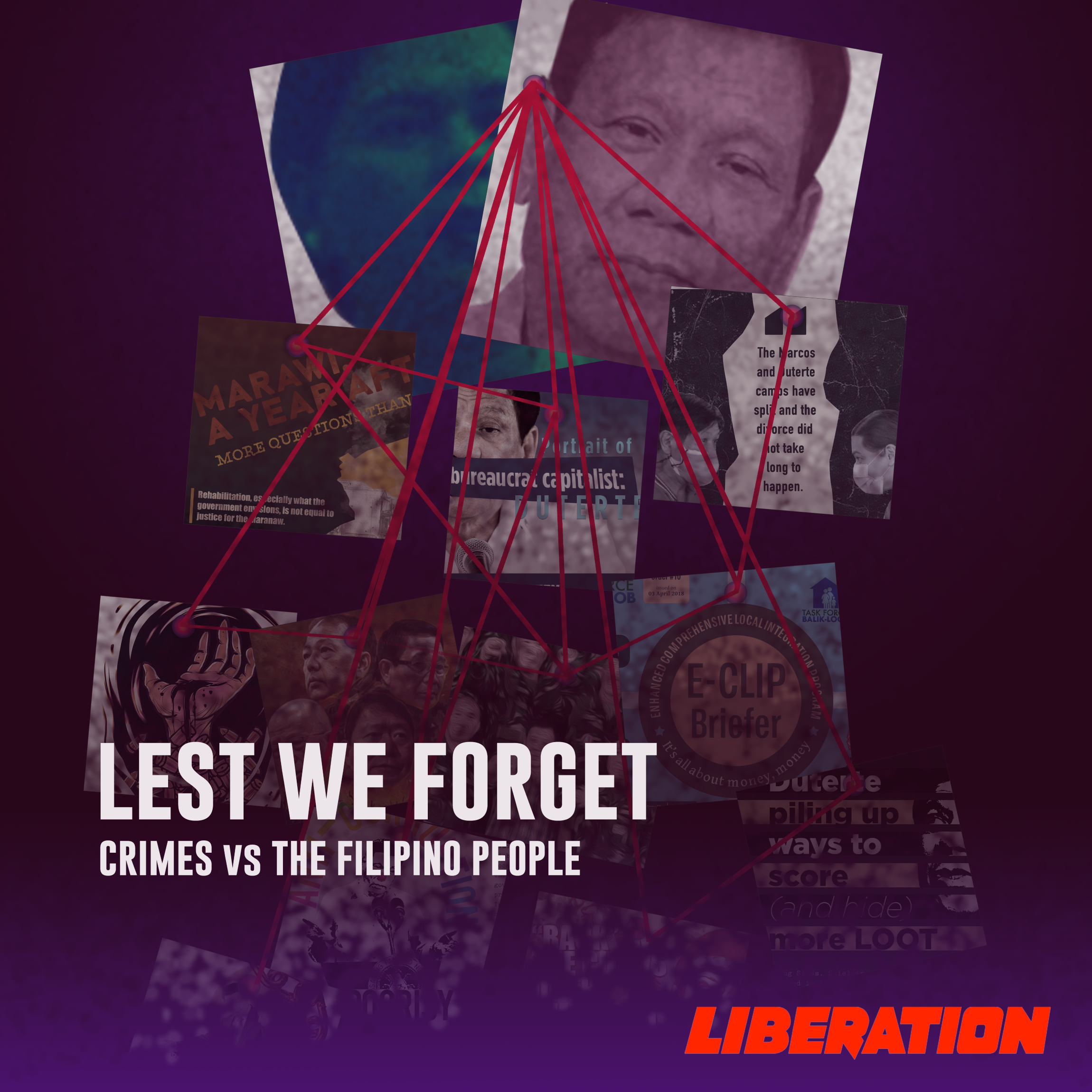
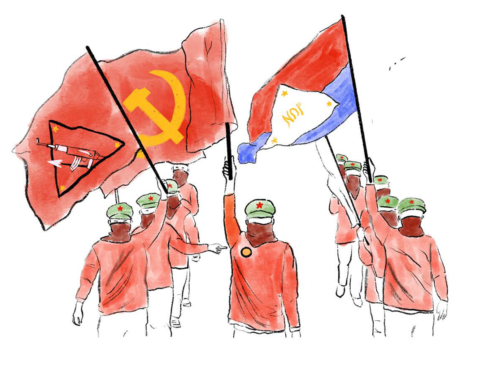
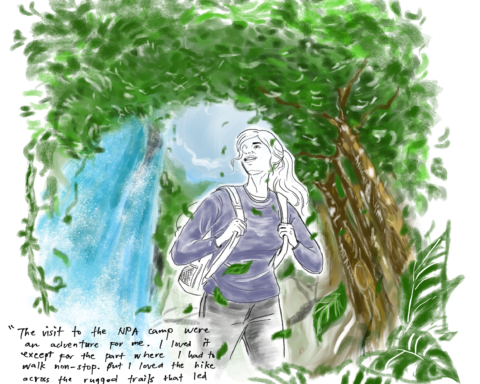
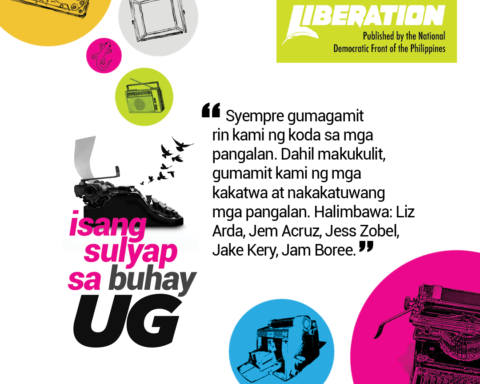


[…] March 9, 2018 […]
Incredible quest there. What happened after? Good luck!